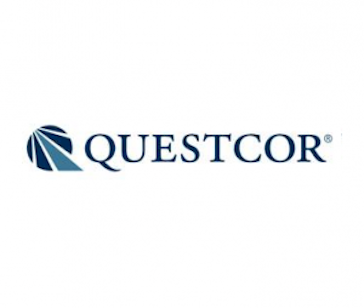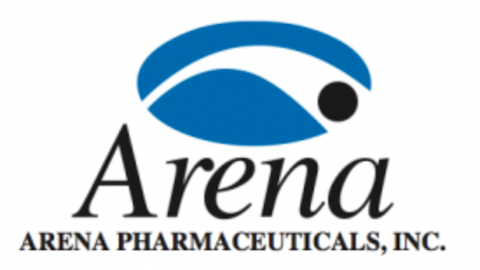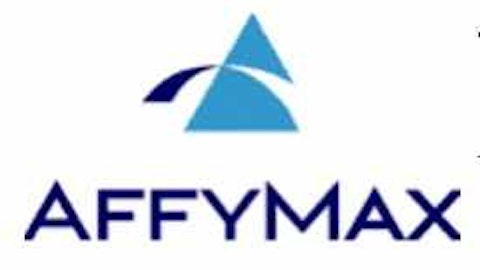Questcor Pharmaceuticals Inc (NASDAQ:QCOR) saw a 15% gain on Tuesday. The large gains occurred after the company acquired rights to develop the autoimmune drug Synacthen in the U.S. from Novartis for $60 million upfront and $75 million in milestone payments. In addition, Questcor will have to pay Novartis a royalty on sales; if it’s approved in the U.S.
Last November, Synacthen was awarded Orphan designation by the FDA, and shares of Questcor traded lower. The reason is because Synacthen and Synacthen Depot could pose a potential threat to Questcor Pharmaceuticals Inc (NASDAQ:QCOR)’s Acthar Gel.
Synacthen and Synacthen Depot are being tested for rheumatology, multiple sclerosis, infantile spasms, and nephrotic syndrome in the U.S. and are already approved in 40 markets. Acthar Gel is used to treat 19 conditions, but the bulk of its sales comes from multiple sclerosis, nephrotic syndrome, and infantile spasms. Therefore, the two products treat many of the same diseases.

A quick history lesson
At first, when I heard the news of Questcor’s acquisition, I figured the company would buy Synacthen and then never develop it in the U.S. Under further consideration, I realized that I was wrong rather quickly.
Since 2005, Questcor Pharmaceuticals Inc (NASDAQ:QCOR) has seen its valuation increase by almost 7,500% — but Acthar is the company’s only product and it was developed in the 1950s. Questcor bought the rights for Acthar Gel in 2001 for $100,000 and no one saw it as a potential blockbuster.
However, over a period of several years, Acthar Gel’s price has increased from $50 to $28,000, including a $1,650-$23,000 boost in 2007. The drug was only intended to be used on infantile spasms – but the stock and sales have skyrocketed as off-label uses have produced incredible growth.
Infantile spasms is currently third in uses for Acthar Gel – accounting for just 6% of total prescriptions – but is the primary reason that Questcor has its Orphan pricing. Hence, a disease with fewer than 800 occurrences per year is the basis for high pricing.
What is the purpose of Synacthen
Questcor Pharmaceuticals Inc (NASDAQ:QCOR) now works hard to maintain its premium pricing. In December 2012, the company had a team of 30 people who did nothing more than work on insurance reimbursements. This equates to one person for each daily script written, showing the level of detail in each use.
Questcor’s process is thorough and is built to maintain its high pricing – by creating the product from leftover animal parts — and fighting the low-cost treatment alternatives to Acthar Gel. In a sense, Questcor is one of the market’s best at maintaining premium pricing and then marketing it with success.
So, where does Synacthen fit into the equation? After the acquisition, Questcor Pharmaceuticals Inc (NASDAQ:QCOR) will still have to study the product at length for each indication in order to earn an FDA approval. In fact, because Synacthen is so cheap, it doesn’t appear as though Questcor would benefit from its use – as its introduction to the market could put pressure on Questcor to lower its prices.
However, we must keep in mind that Questcor did drastically raise prices of Acthar will success and has achieved sales beyond its own wildest dreams, according to CEO Don Bailey. Therefore, because of its success with this strategy, why wouldn’t the company attempt this strategy once more?
Synacthen has already been granted an Orphan designation, and in biotechnology, it needs nothing more in order to demand premium pricing. Synacthen is already being used to treat many of Questcor’s more lucrative indications in other countries. Therefore, Questcor might find it simple to boost the price of Synacthen, once it’s approved, and then use it as an alternative to Acthar in treating common diseases in which Acthar has no effect.
If Questcor’s plan is to eventually boost the price of Synacthen – based on its history I see no reason to believe that this is not their intention – then it seems logical that large pharma Novartis would want no part in the launch. A small royalty on inflated revenue would be more lucrative for the company versus marketing at just 3% the price of Acthar. At this point, it’s hard to say with certainty if Questcor will go this route – but with all things considered, it does seem like the only logical explanation for the acquisition.
Final thoughts
While Questcor Pharmaceuticals Inc (NASDAQ:QCOR)’s business practices may be frowned upon, they are not unheard of in biotechnology. As an investor, when you can find such a practice it is usually very rewarding.
Jazz Pharmaceuticals plc – Ordinary Shares (NASDAQ:JAZZ) has practiced the same strategy for the last five years, and during this period its stock has increased over 8,000%. Specifically, its drug Xyrem – which treats rare conditions – has seen a price hike of 220% since late 2008. Moreover, analysts expect another 70% boost by the end of 2014. However, there is a difference between it and Questcor: Jazz Pharmaceuticals actively markets 10 other drugs. Furthermore, Jazz has been lessening its dependence on Xyrem through acquisitions and pipeline growth; a practice that Questcor might need to explore.
While Jazz Pharmaceuticals plc – Ordinary Shares (NASDAQ:JAZZ) is playing the Questcor game (partially), they are nowhere near as good as Questcor. In history, there is perhaps no other company that has been as successful at boosting prices and maintaining insurance coverage. As a result, I find it hard to believe that Questcor’s strategy is not to try the same strategy with Synacthen, and to see if it can go two-for-two.
Brian Nichols has no position in any stocks mentioned. The Motley Fool has no position in any of the stocks mentioned. Brian is a member of The Motley Fool Blog Network — entries represent the personal opinion of the blogger and are not formally edited.
The article What Is the “True” Intention Behind This Market-Moving Drug Acquisition? originally appeared on Fool.com and is written by Brian Nichols.
Copyright © 1995 – 2013 The Motley Fool, LLC. All rights reserved. The Motley Fool has a disclosure policy.


